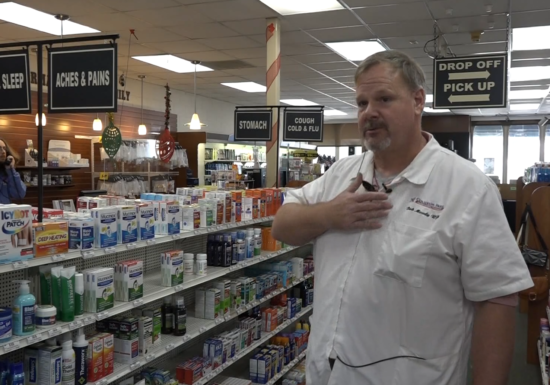Poop-based drug approved, why we missed Omicron, why pharmacists need improv, and more
03 Dec 2022
Posted by Andrew Kantor
A pharmacist walks into a bar…
Pharmacists, it seems, might learn a lot from the rules of improv comedy. Arizona pharmacist Cory Jenks writes in Pharmacy Times how those rules — starting with the big one, “Always say yes” — helped him fight against burnout (and do better for his patients and co-workers).
[P]ushback was only making my job harder by delaying the action I needed to address the challenge before me. Once I simply was able to say “yes” to whatever happened, it allowed me to get to work fixing the problem, which is much more satisfying and useful than living in those moments of denial.
It must have worked; these days Cory identifies as “Pharmacist, Author, Comedian, Speaker.”
Our number 2 story
The FDA has approved Rebyota — “a poop-based drug implant that can prevent the recurrence of Clostridioides difficile infection.” It’s the first fecal transplant product approved by the agency. (The technique is being used already, in hospital settings.)
Shout out to Bobby Moody
GPhA’s past president was featured on CBS channel 13 in Macon, talking about the nationwide Tamiflu shortage. More than 1,000 Georgians have been hospitalized with the flu so far this year, and at least 14 have died.

Nano-missionaries tackle fat hoarders
What if, thought Columbia researchers, we attacked fat cells with … tiny robots?
“Even better,” someone muse have suggested, “rather than destroying them, what if we converted them from the bad, lipid-hoarding type to the good, metabolism-healthy type?”
“A great idea,” chipped in the PR people, “but it needs a science-y spin.”
In fact, when mice were injected, the nanomaterial actually prevented enlarged fat cells from storing yet more lipids — “the mice had more metabolically healthy, young, small fat cells like those found in newborns and athletes.”
They provided a helpful graphic:

* They used a positively charged nanomaterial to ‘attack’ the negatively charged parts of fat cells — the parts that store too much fat.
Perspective: It ain’t over
Lest we forget: The CDC reports that 9,000 Americans died from Covid-19 last month. In Georgia alone, more than 100 people are dying every week, and more than 41,000 (!) have been killed by the virus to date.
Latest Alzheimer’s theory
Bit by bit, the amyloid-plaque-causes-Alzheimer’s theory is being supplanted. The plaques are clearly involved, but they don’t seem to be the actual cause. At least not directly.
The latest idea comes out of Yale, where neuroscientists think the cognitive issues of Alzheimer’s might be caused by “spheroid-shaped swellings” along the brain’s axons. Those swellings appear near plaque buildups, and are caused by a buildup of a protein (PLD3) in lysomes.
Clearing out that PLD3, they found, improved mices’ cognitive functions. (Obviously more research is very much needed.)

Before and after; artist’s conception
Omicron’s origins
Covid-19’s omicron variant appeared quickly and spread around the globe in a matter of months, but where did it originate? It’s not just about knowing who to blame (although that’s always fun). It’s about being able to predict and watch for future mutations to get a leg up.
There were two theories: A) Omicron evolved when an older variant jumped from human to animal and back, or 2) “the virus survived in a person with a compromised immune system for a longer period of time and that’s where the mutations occurred.”
It turns out — say German researchers who sequenced the genes of the virus in 670 samples — that there was a third option: Omicron evolved gradually from different ancestors, and it circulated for months before exploding onto the scene. And that’s not great news.
“The fact that Omicron caught us by surprise is instead due to the diagnostic blind spot that exists in large parts of Africa, where presumably only a small fraction of SARS-CoV-2 infections are even recorded. Omicron’s gradual evolution was therefore simply overlooked.
Salted peanuts and herbs
“Peanuts and Herbs and Spices May Positively Impact Gut Microbiome” says a Penn State study — a study funded by the Peanut Institute and McCormick (you know, the seasoning people) Science Institute.


